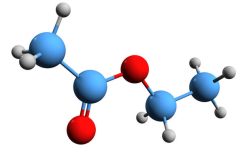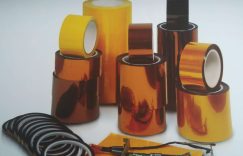Polyimide (PI) is a high-performance polymer known for its exceptional thermal stability, electrical insulation, and chemical resistance. It has a wide range of applications in various industries, including electronics, aerospace, and automotive. Due to its versatile properties, polyimide is available in different types, each with unique characteristics to meet specific application requirements. Here are the main types of polyimide:

-
Linear Polyimide:

- Structure: Linear polyimides consist of a repeating chain of imide rings connected by flexible linkages.
- Properties: Linear polyimides typically exhibit high-temperature resistance, good dielectric strength, and excellent mechanical properties. They are also resistant to solvents and chemicals.
- Applications: Linear polyimides are commonly used in flexible printed circuit boards (FPCBs), high-temperature insulation materials, and composite materials.
-
Ladder Polyimide:
- Structure: Ladder polyimides have a rigid ladder-like structure with alternating imide rings and benzene rings.
- Properties: Ladder polyimides possess superior thermal stability, mechanical strength, and electrical insulation compared to linear polyimides. They also have low dielectric loss and excellent chemical resistance.
- Applications: Ladder polyimides are used in high-performance electronics, aerospace components, and flexible displays due to their extreme environmental resistance.
-
Bismaleimide (BMI) Polyimide:
- Structure: BMI polyimides are formed by the reaction of bismaleimide monomers with diamines or dianhydrides.
- Properties: BMI polyimides are characterized by their high cross-linking density, low moisture absorption, and excellent adhesion to metal surfaces. They also have good electrical properties and thermal stability.
- Applications: BMI polyimides find applications in printed circuit boards, semiconductor packaging, and composite materials.
-
Polyetheretherketone (PEEK) Polyimide:
- Structure: PEEK polyimides are composed of repeating units of PEEK and imide rings.
- Properties: PEEK polyimides combine the high-temperature resistance and chemical resistance of PEEK with the electrical properties of polyimide. They have excellent mechanical strength, wear resistance, and low flammability.
- Applications: PEEK polyimides are used in high-temperature connectors, bearings, and seals in aerospace, automotive, and chemical industries.
-
Light-Curable Polyimide:
- Structure: Light-curable polyimides contain photosensitive groups that undergo polymerization upon exposure to light.
- Properties: Light-curable polyimides offer rapid curing, low-temperature processing, and high resolution. They also exhibit good adhesion to various substrates.
- Applications: Light-curable polyimides are commonly employed in solder masks, conformal coatings, and optical applications.
These are some of the main types of polyimide, with each type exhibiting unique properties tailored to specific application requirements. The choice of polyimide resin depends on factors such as the operating temperature, electrical requirements, chemical resistance, mechanical strength, and processing conditions.




